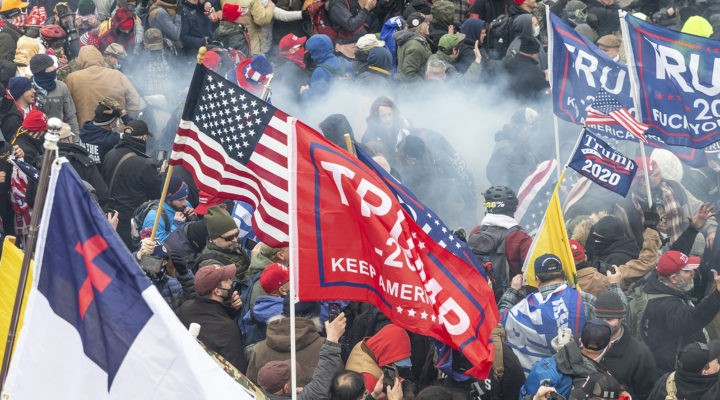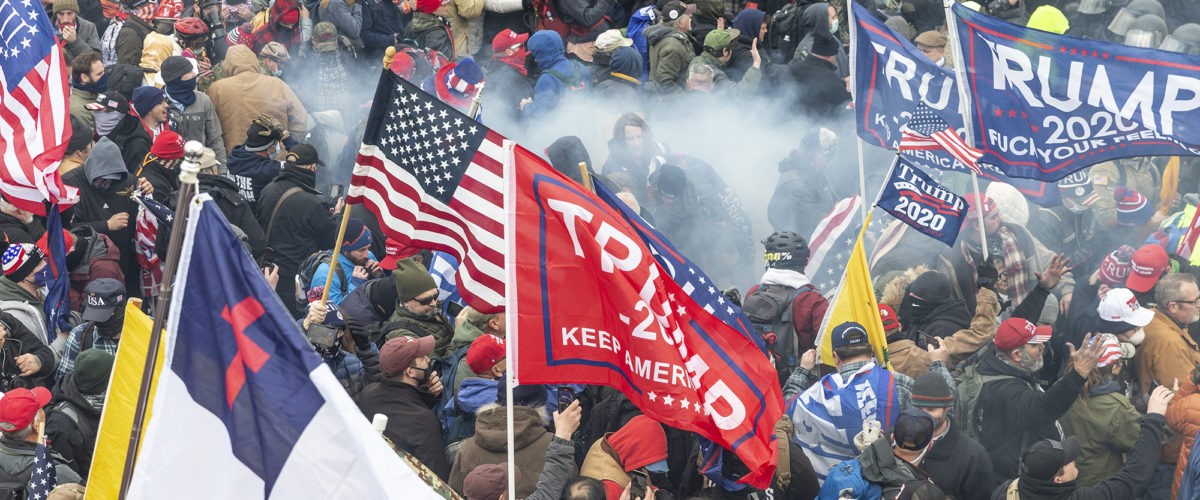Ongoing efforts by white Christian nationalists to destabilize American democracy must be met with the courage and grassroots activism made famous by the 1960s Civil Rights movement, panelists said during the second of two Aug. 18 webinars on the movement.
It isn’t enough to denounce the toxic mixture of the white supremacist and patriotic form of evangelical Christianity that animated the Jan. 6 attack on the U.S. Capitol and the deadly “Unite the Right” rally in Charlottesville, Va., in 2017, said panelist Jemar Tisby, author of The Color of Compromise: The Truth About the American Church’s Complicity in Racism.
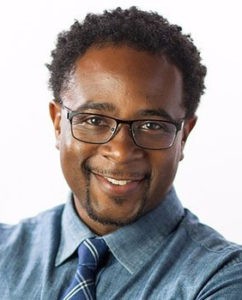
Jemar Tisby
The nation is in the midst of a modern-day civil rights struggle that “requires direct action, nonviolent protests and marches and, as we have seen already, people getting arrested,” Tisby said. “This isn’t going to just be hashtag activism.”
This webinar, “Engaging White Christian Nationalism in Public Spaces,” was hosted by the Center for the Study of Religion and American Culture at Indiana University-Purdue University Indianapolis and moderated by Amanda Tyler, executive director of Baptist Joint Committee for Religious Liberty.
The panel also included writer and pastor Angela Denker, speaker and activist Jonathan Wilson-Hartgrove and religion journalist Jack Jenkins. They discussed the nature and character of white Christian nationalism and ways pastors, churches and others can push back against its goal of making Christianity the official religion of the United States.
White Christian nationalism advocates for a fusion of Christianity with an American civic belonging that is unapologetically white in identity and politics, Tisby said.
It will take a network of response on all levels of church and society to oppose such a force, he said in urging webinar participants to join organizations already engaged in the fight or to create their own if there is a local need going unmet.
The facts that millions of Americans participated in some form of Black Lives Matter protest and that the Confederate battle emblem was removed from the Mississippi state flag in 2020 give witness to the power of unity in activism, he explained. “Change happens on the micro level. It’s very unsatisfying in that sense because it’s not always a law being passed, it’s a person who makes that Facebook comment.”
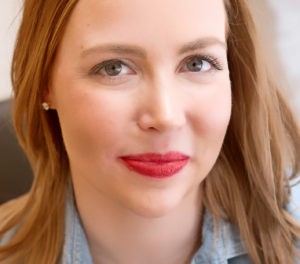
Angela Denker
Churches must teach biblical literacy as another form of opposition to white Christian nationalism which represents “a form of idolatry and a threat to the gospel,” said Denker, a Lutheran pastor, journalist and author of Red State Christians: Understanding the Voters Who Elected Donald Trump.
Adherents of the movement seek power and material gain while rejecting the reasons Jesus said he had come: to aid the poor, release the captives, restore sight to the blind and free the oppressed, she said.
“White Christian nationalism is against what Jesus is doing here,” Denker said of the passage in Luke chapter 4.
Pastors often must display courage in addressing their own congregations about the threat Christian nationalism poses to their faith and communities, she warned. “We must speak more explicitly against the roots of Christian nationalism. When you feel that weight, ‘I must speak,’ especially when there are those who disagree, speak clearly and speak honestly and speak contextually.”
Supporters of democracy and religious pluralism are engaged in a battle to protect truth and in which there is no time for sitting back or mincing words, Denker said. “Give people something they can do locally that pushes them toward action.”
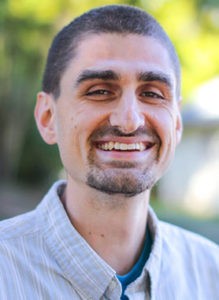
Jonathan Wilson-Hartgrove
But those acting against white Christian nationalism need to know it was created by powerful organizations seeking to grow a base for political and economic gain, said Wilson-Hartgrove, author of Reconstructing the Gospel: Finding Freedom from Slaveholder Religion and a steering committee member with the Poor People’s Campaign.
“It’s a cultural product of people who want to hold onto power,” he said, and it is a “threat to the soul” that he grew up following, himself. “I came to understand when you conflate this kind of ideology that’s tied up with white supremacy and American supremacy and an extreme political agenda, you get what is called idolatry.”
Churches have a responsibility for working against the movement and its current goals of voter suppression and election subversion in numerous states, he added.
This belief system is nothing new but was given new life as a backlash to the Civil Rights Movement, Wilson-Hartgrove said. “It’s important to recognize that this didn’t just happen. A culture was created by forces heavily invested in perpetuating that culture through parachurch organizations who influence people more than their pastor or small groups do.”
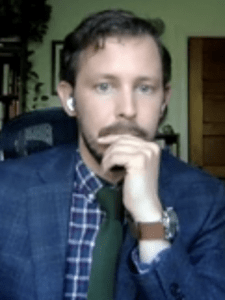
Jack Jenkins
It will take a culture equally dedicated to helping the poor to oppose white Christian nationalism, he said. “That is what beloved community looks like.”
Jenkins, a reporter with Religion News Service, said he’s witnessed that counter movement rising up against white Christian nationalism. As a reporter, he attended the pro-Trump Jericho March at the U.S. Capitol Jan. 5, only to later see a Poor People’s Campaign event on the same site praying and singing hymns.
However, recent anti-mask and anti-vaccination rallies in Los Angeles, where speakers “repeatedly invoked white Christian nationalism,” make it clear the movement is not going away, he said.
BJC created Christians Against Christian Nationalism to provide individuals, churches and other organizations with principles and tools to fight back against the conservative political and religious ideology. Tyler described the movement as the greatest threat to every American’s freedom to live without unnecessary government interference.
Christians Against Christian Nationalism recently released a new curriculum for churches to use in educating people about white Christian nationalism. In one month alone there were more than 1,000 unique downloads, Tyler said. “That’s hopeful to me.”
Related articles:
Attacks on Critical Race Theory didn’t come out of nowhere, panelists say
More advocates needed to counter Christian nationalism, BJC leader urges

